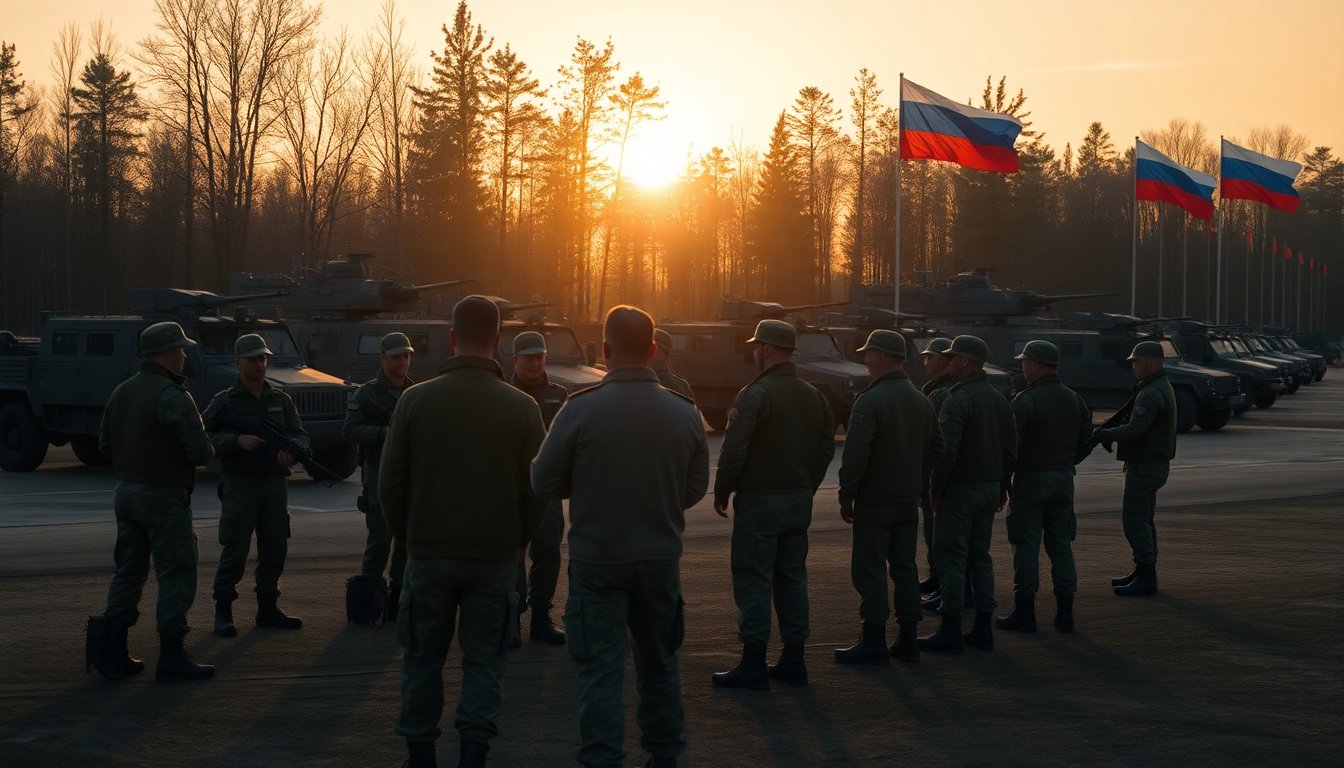Table of Contents
In the evolving landscape of international relations, significant developments regarding military personnel, prisoners, and diplomatic discussions concerning Russia have emerged. Reports from October 17 highlight these crucial events, illustrating their interconnectedness and implications for Russia and its global relationships.
Military personnel and their circumstances
The state of Russia’s armed forces has become a point of concern amid ongoing conflicts and the treatment of military personnel. Reports indicate challenges faced by soldiers, including welfare issues and the situations of those imprisoned under various allegations. Understanding the complexities of military life is essential, as these factors significantly influence Russia’s military strategies.
Prisoners in uniform
The plight of prisoners in uniform warrants special attention. Many individuals find themselves in legal and political dilemmas, often facing severe consequences for actions perceived as dissent against state policies. Their experiences underscore the urgent need for reform and transparency within military judicial processes. As international observers focus on these issues, calls for accountability and humane treatment intensify.
The role of clergy in military affairs
Another dimension of this complex scenario is the involvement of religious figures in military matters. A notable man of the cloth has emerged as a key commentator on the ethical dimensions of military actions and soldiers’ moral responsibilities. His insights highlight the intersection between faith and warfare, prompting vital discussions about the spiritual implications of military service.
Spiritual guidance in conflict
The challenges soldiers face are not solely physical; they also encompass deep emotional struggles. Spiritual leaders play a critical role in offering counsel and support, providing a space for reflection amid the chaos of military life. This spiritual guidance can serve as a beacon of hope for those grappling with moral dilemmas inherent in warfare. The dialogue surrounding the integration of faith in military contexts continues to evolve, prompting both soldiers and civilians to consider the broader implications of their actions.
European perspectives on reparations for Ukraine
Turning to international relations, Europe is engaged in discussions about reparations for Ukraine. As the impact of past conflicts persists, the need for reparative measures has become a focal point in diplomatic conversations. The European Union and its member states are grappling with how to address the historical injustices faced by Ukraine, advocating for a collective approach to reparations that recognizes the complexities of the region’s history.
Challenges in the reparations dialogue
As discussions progress, various challenges arise. Differing opinions on the extent and nature of reparations often lead to contentious debates among European leaders. Additionally, the political ramifications of these discussions can be significant, influencing not just bilateral relationships but the broader geopolitical landscape. Policymakers must navigate these complexities carefully, ensuring that any agreements foster lasting peace and reconciliation.
Anticipation of future diplomatic engagements
Attention is also focused on the upcoming diplomatic meeting between Donald Trump and Vladimir Putin. As both leaders prepare for discussions, the stakes are high for their nations and the global community. The outcome of their dialogue may yield far-reaching consequences, particularly regarding military strategy and international cooperation.
As the world observes closely, it is crucial to consider the implications of their meeting on the existing tensions between Russia and the West. This forthcoming encounter represents a pivotal moment in international relations, where dialogue could pave the way for healing or exacerbate discord.


